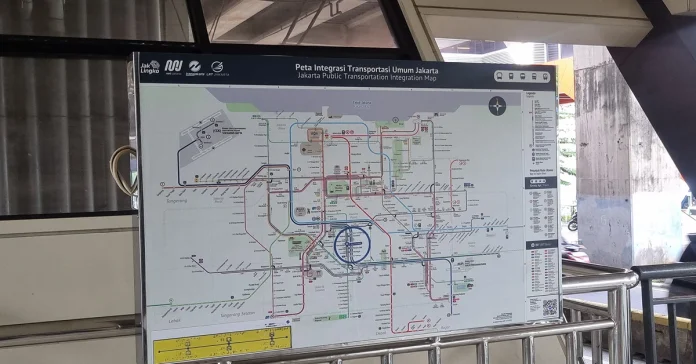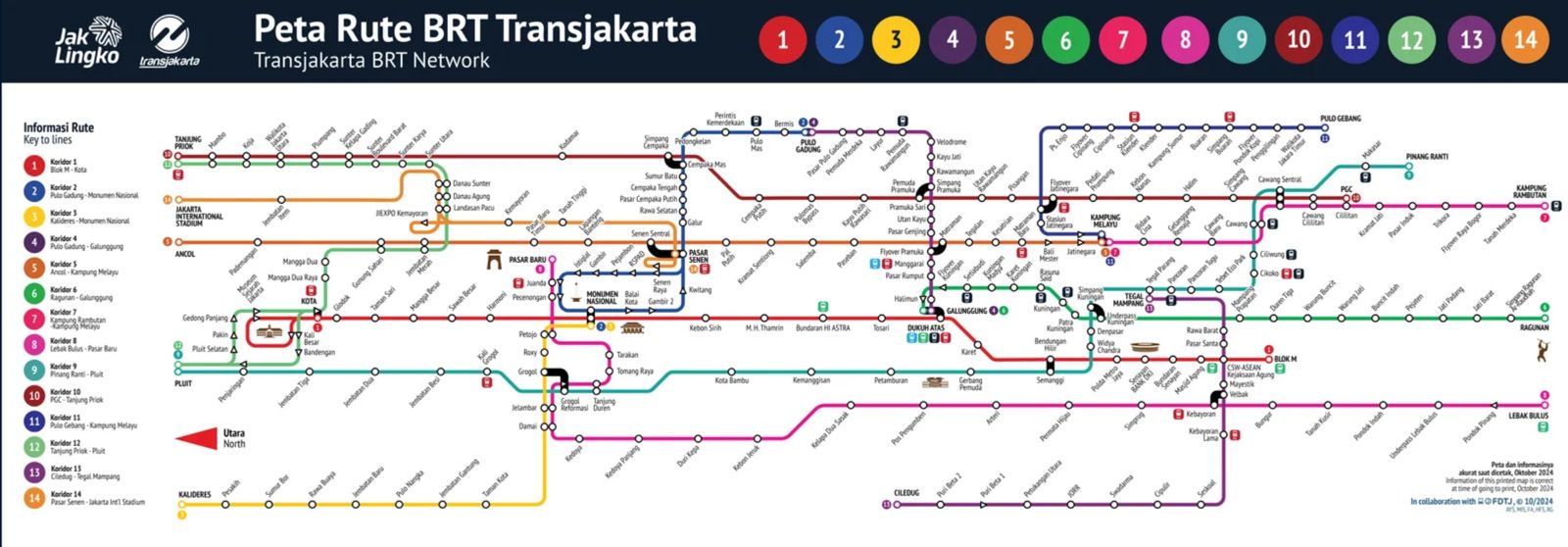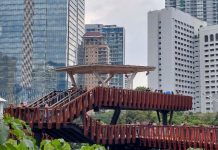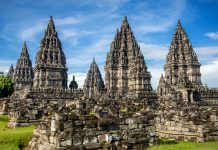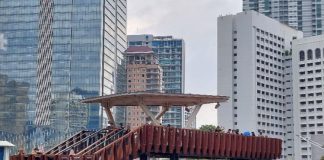Jakarta, one of the most vibrant megacities in Southeast Asia, is home to over 11 million residents and millions more commuters from nearby cities daily. The broader metropolitan area, which includes surrounding cities, has a significantly larger population of over 32 million people.
Famous for its traffic jams, the city has been investing heavily in a modern and integrated public transportation system.
Overseen by the Jakarta Transportation Agency (Dishub DKI) and supported by KAI Commuter, the network now includes buses, MRT, LRT, commuter trains, and premium services — all connected through the city’s digital payment ecosystem.
Modes of Transportation in Jakarta
🚍 TransJakarta Bus Services
Since its launch in 2004, TransJakarta has grown into one of the most extensive bus networks in the world — covering more than 250 km of routes across Jakarta and its outskirts. It operates a variety of interconnected services to meet every commuter’s needs:
Jakarta’s main bus network runs on dedicated lanes (busways) across the city.
It’s fast, affordable, and accessible, with a flat fare of Rp 3,500 per trip.
Operating hours: 24 hours on key corridors.
Provides connections to and from areas not directly served by BRT corridors — ensuring smooth “last-mile” travel.
Small feeder vehicles (often called “angkot modern”) that reach deep into residential neighbourhoods, making public transport accessible to all corners of Jakarta.
Fare: Rp 0 (free) under the Jakarta government subsidy program.
A premium bus service offering extra comfort — reclining seats, Wi-Fi, air conditioning, and spacious interiors.
Fare: Starts from Rp 20,000.
Ideal for: Office commuters and intercity travellers.
A dedicated transportation service for people with disabilities in Jakarta.
This service ensures accessibility from pick-up points to disability-friendly bus stops, reinforcing TransJakarta’s commitment to inclusivity. Fare: Rp 0 (free)
A free tourist bus service designed to help visitors explore Jakarta’s historical, cultural, and iconic landmarks — including the National Monument (Monas), Kota Tua, and the HI Roundabout.
Fare: Free
Operating hours: 10:00–19:00 WIB (varies by route)
Designed for intercity commuters, this service connects Jakarta with surrounding metropolitan cities — Bogor, Depok, Tangerang, and Bekasi (Bodetabek).
It offers affordable, comfortable rides for daily travelers heading into the capital.
Fares: Rp 10,000–Rp 20,000 (distance-based)
Operating hours: 05:00–22:00 WIB
🚇 Jakarta MRT (Mass Rapid Transit)

Jakarta’s first underground and elevated metro system connects business districts with residential areas.
Current Line: North–South Line (Bundaran HI – Lebak Bulus)
Future Expansion: East–West Line under construction
Operating Hours:
● Weekdays: 05:00–24:00 WIB
● Weekends & Public Holidays: 06:00–24:00 WIB
Fares: Rp 3,000–Rp 14,000 depending on distance.
🚈 Jakarta LRT (Light Rail Transit)
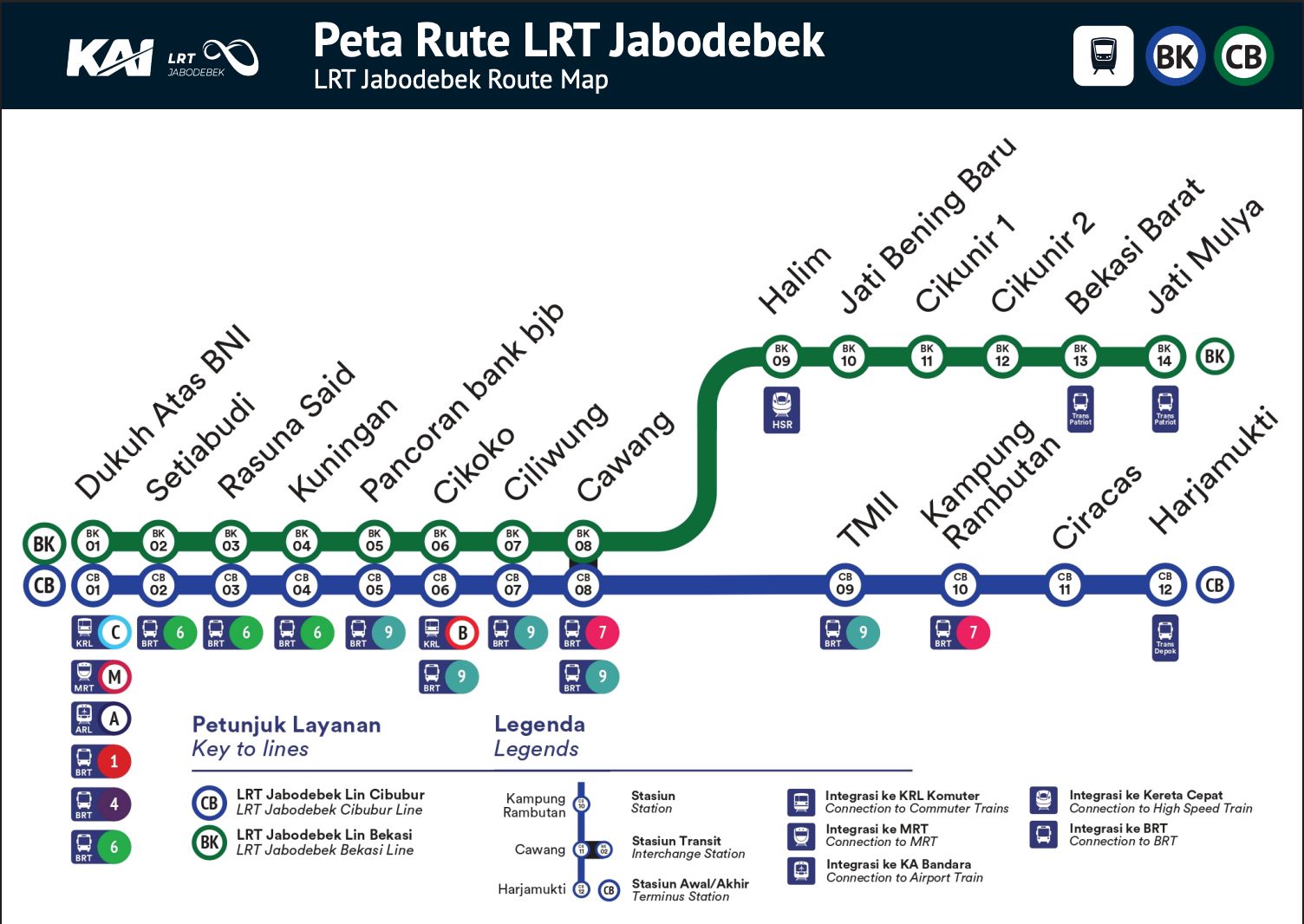
The LRT Jakarta connects residential hubs in East and North Jakarta to key business and transport centers.
Lines:
● Cibubur Line (East Jakarta – Dukuh Atas)
● Kelapa Gading Line (North Jakarta – Velodrome/Rawamangun)
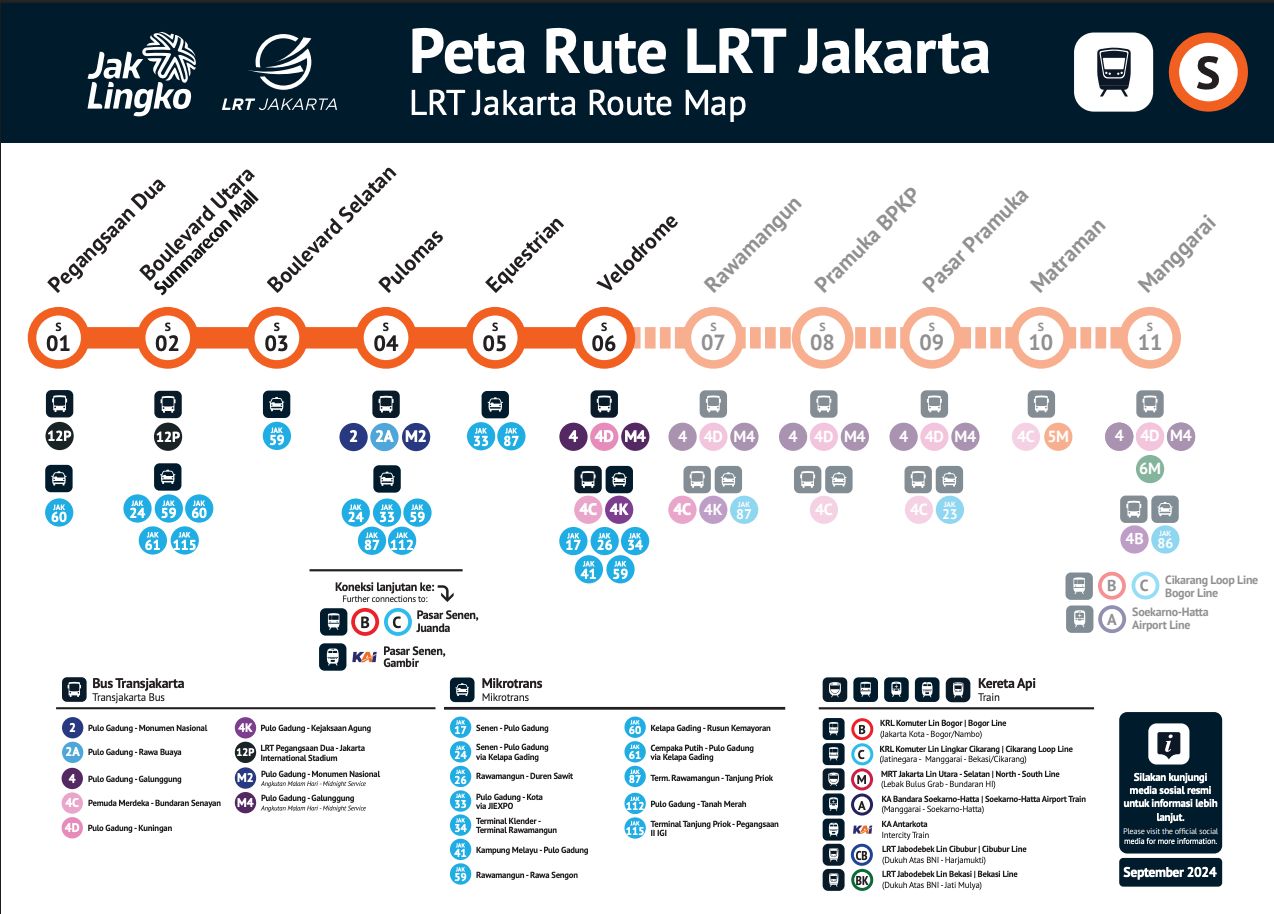
Operating Hours: 05:30–23:00 WIB
Fare: Rp 5,000–Rp 15,000
Future plans: Line extensions to integrate with MRT and KRL Commuter networks.
🚆 KRL Commuter Line (KAI Commuter)

The KRL Commuter Line remains the backbone of Jakarta’s urban transit, connecting the capital to Bogor, Depok, Tangerang, and Bekasi. It serves over 1 million passengers daily.
Operating Hours: 04:00–24:00 WIB
Fare: Rp 3,000 for the first 25 km, plus Rp 1,000 per 10 km thereafter (max Rp 12,000).
Main Lines:
● Red Line: Jakarta Kota – Bogor/Depok
● Yellow Line: Jatinegara – Bogor/Depok (via Tanah Abang)
● Green Line: Tanah Abang – Rangkasbitung
● Blue Line: Jakarta Kota – Bekasi/Cikarang
Tickets: KMT (Multi-Trip Card), e-money cards, or JakLingko integration.
Digital Payment System
Jakarta’s public transport is cashless, ensuring quick, seamless payments across all modes.
Accepted Bank Cards:
BCA Flazz, BNI TapCash, BRI Brizzi, Mandiri e-money
City Cards:
Jakcard (Bank DKI), JakLingko Card, KMT (Multi-Trip Card)
Mobile Apps:
● JakLingko App / LinkAja – Unified ticketing for all networks
● MyMRTJ App – MRT travel, QR tickets, and live tracking
MRT-Specific Payments
According to @mrtjkt, payment options include:
● Bank e-money cards
● KMT or JakLingko Card
● QR tickets via MyMRTJ App or vending machines (Rp 2,000 issuance fee)
Supported e-wallets: AstraPay, blu by BCA, DANA, GoPay, iSaku, Kredivo, and Mastercard.
Average Fares at a Glance
Transport Mode Average Fare (Rp) Operating Hours Frequency
TransJakarta (BRT + Feeder + Microtrans + RoyalTrans + Tour) 0–20,000+ 05:00–24:00 5–30 min
Jakarta MRT 3,000–14,000 05:00–24:00 5–10 min
Jakarta LRT 5,000–15,000 05:30–23:00 10–15 min
KRL Commuter Line 3,000–12,000 04:00–24:00 5–15 min
Ongoing and Future Developments
Jakarta continues modernising its transport network with:
● The MRT East–West Line (under construction)
● LRT extensions to central districts
● KRL double-tracking and new stations
● JakLingko integration unifying ticketing and payments
Final Thoughts
Jakarta’s public transportation has transformed from fragmented routes to a fully integrated, digital-first ecosystem.
Whether you take the TransJakarta bus, hop on the MRT, or ride the KRL, getting around the capital has never been easier.
As infrastructure expands and technology advances, Jakarta is steering confidently toward a smarter, greener, and more connected urban future.
by Bhavish Adwani


